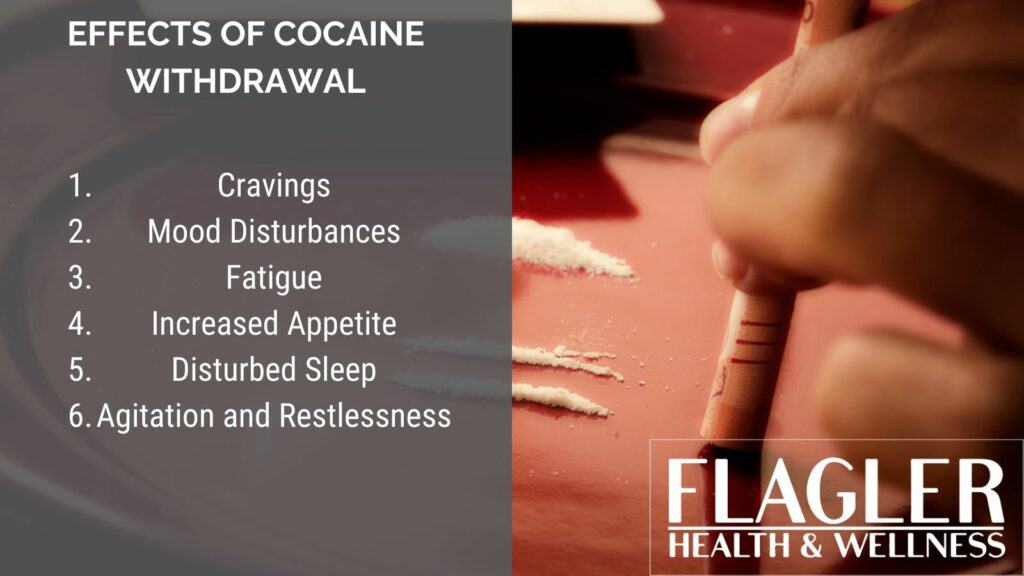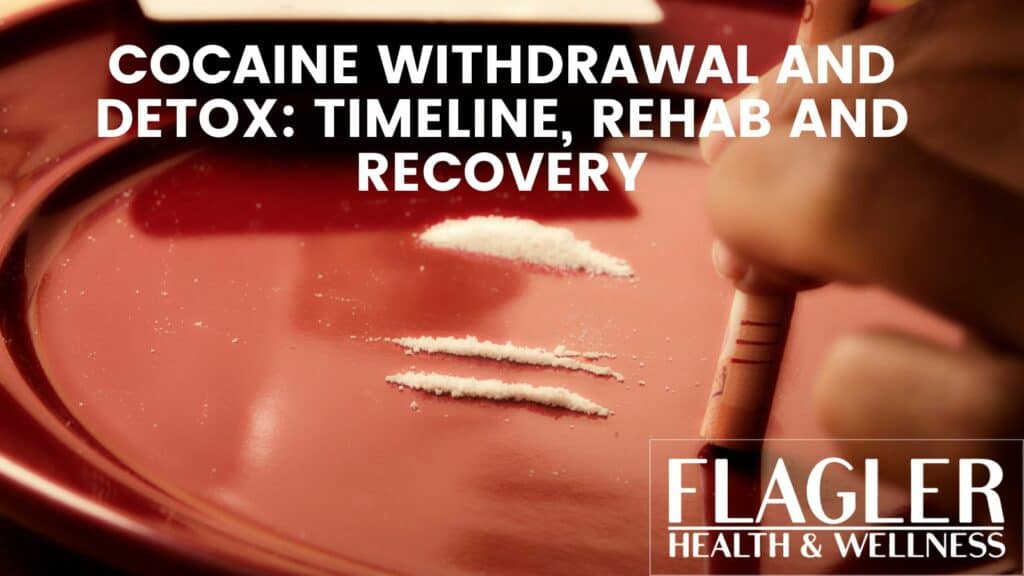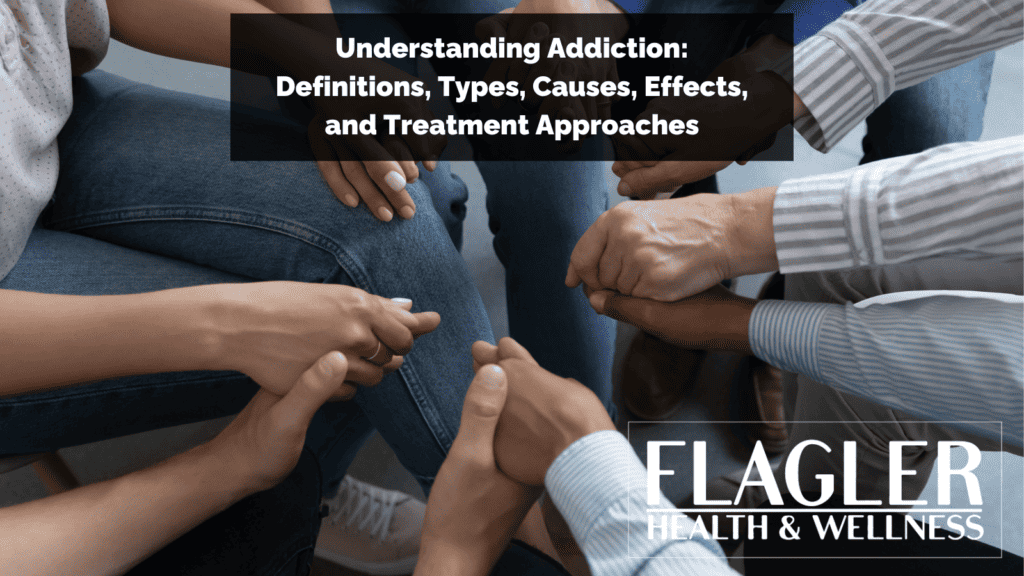Overcoming cocaine addiction requires navigating through cocaine detox and rehabilitation. Cocaine detox, the first crucial step, can be challenging and dangerous. It involves experiencing a range of symptoms such as physical exhaustion, headaches, and difficulty sleeping, as well as psychological challenges like anxiety, depression, and intense cravings.
In the first few hours, the person may feel irritable and anxious, but surprisingly, they may experience a decrease in drug cravings. Then, during the first week, people will experience intense cravings again, exhaustion, and mood swings. During weeks 2-4, they may continue to feel depressed and have strong cravings. However, between weeks 5-10, they will gradually start to recover and experience less frequent urges to use cocaine.
There are two main ways to go through detoxification: Inpatient Detox and Outpatient Detox. Inpatient Detox is an intensive program that takes place in a hospital or residential setting. It’s best for people who have a higher risk of complications during detox. Outpatient Detox is a less intensive option that’s suitable for people who have a good support system at home. Both paths involve careful attention to symptoms and the use of medications, counseling, and support groups to help make the withdrawal process easier.
After detox, rehab treatment is necessary for a complete addiction recovery. Rehab addresses not only physical dependence but also psychological and behavioral aspects of cocaine addiction. Symptoms such as restlessness, agitation, and difficulty concentrating are met with therapeutic approaches like individual counseling, group therapy, and family therapy. The educational components focus on addiction understanding, relapse prevention, and life skill development, ensuring a holistic approach to long-term recovery.
What is Cocaine Detox?
Cocaine detox is the process of safely withdrawing from cocaine. There are many treatment options available to help people detox from cocaine successfully, although it can be a difficult and dangerous process.
According to the National Institute on Drug Abuse, the majority of individuals (68% in 2013) who seek treatment for cocaine addiction smoke crack and are often polydrug users, which means they use more than one substance. This suggests that drug addiction is a complex disease that affects the brain and is influenced by various social, familial, and environmental factors. Therefore, in order to treat cocaine addiction effectively, it is essential to address this complex context, as well as any other co-occurring mental disorders that may require additional behavioral or pharmacological interventions.
A study published in the National Library of Medicine reveals that over 2 million individuals in the United States use cocaine regularly. Out of these, 1.5 million are addicted to it. Cocaine addiction can cause severe health issues and other adverse consequences, yet people continue to use it compulsively despite being aware of the risks. However, enrolling in a cocaine detox program can significantly reduce the chances of relapse.
Compared to other substances like alcohol and opioids, the symptoms of cocaine withdrawal are generally less severe. However, the severity of the symptoms can vary from person to person and may sometimes require medical attention.
What Are The Different Cocaine Detoxification Methods?
Inpatient Detox
Inpatient cocaine detox is a highly intensive form of treatment that takes place in a hospital or residential treatment center. This type of detox is usually suggested for individuals who are at high risk of complications from withdrawal. For example, individuals with a history of severe withdrawal symptoms or those who are also struggling with other health conditions.
Patients undergoing inpatient detox are under 24/7 supervision by a team of medical professionals. They may be given medication to ease withdrawal symptoms, including benzodiazepines for anxiety and antidepressants for depression. Additionally, patients may engage in therapy and support groups to help them address the psychological aspects of addiction.
Outpatient Detox
Outpatient cocaine detox is a less intensive treatment option that takes place in a rehab center, a clinic, or a doctor’s office. It’s recommended for those at lower risk of complications from withdrawal who have a strong support system at home.
During outpatient detox, patients visit their healthcare provider regularly to receive medication and counseling. They are also encouraged to participate in therapy and support groups as part of their treatment.
What Products Help Detoxification From Cocaine During Medical Detox?
Medical detox is a process that is carefully supervised in a hospital or addiction treatment center. It involves the use of medication to help manage the symptoms that a person experiences when they stop using cocaine. These symptoms can be severe and uncomfortable, so medication is used to help make the process easier and safer. Some of the medications that may be used during medical detoxification include:
- Antidepressants: These medications can help reduce depression, anxiety, and irritability.
- Mood stabilizers: These medications can help stabilize mood and reduce cravings.
- Anticonvulsants: These medications can help prevent seizures, which can be a risk during cocaine withdrawal.
Sometimes, doctors may give medicines called sedatives to help people feel calm and sleep better during detox. This is usually done for a short time, usually between 5-10 days.
What Is The Difference Between Cocaine Withdrawal and Cocaine Detox?
The fundamental difference between cocaine detox and withdrawal lies in the presence of a treatment program. Even though detoxification involves experiencing withdrawal symptoms, it also entails providing patients with medical supervision, assistance, and support to conquer withdrawal. A detox program entails managing withdrawal symptoms and taking care of the body until the drug is entirely eliminated from the system, and withdrawal symptoms have ceased.
Since detox and withdrawal can pose health risks, it is not advisable to attempt them at home. Specifically, trying to detox from opiates and cocaine alone can have fatal consequences. The recommended approach is to seek detox in a secure, professional environment with experts who can monitor withdrawal symptoms and provide care for patients.
What Is The Cause Of Cocaine Withdrawal?
Cocaine withdrawal is primarily caused by the abrupt cessation or reduction of cocaine use after prolonged and regular consumption. The drug affects the brain’s reward system, leading to changes in neurotransmitter levels, particularly dopamine. When cocaine use is discontinued, the brain struggles to regulate neurotransmitters, resulting in withdrawal symptoms. These symptoms can include fatigue, depression, anxiety, increased appetite, and intense drug cravings.
What Are The Symptoms of Cocaine Withdrawal During Detox?
When someone stops using cocaine, they might experience physical and psychological symptoms known as cocaine withdrawal. These symptoms can vary from mild to severe and last for a few weeks or months.
Physical Symptoms
- Fatigue.
- Headaches.
- Insomnia.
- Chills.
- Sweating.
- Muscle aches.
- Tremors.
- Increased appetite.
- Nausea.
- Vomiting.
- Diarrhea.
- Constipation.
- Dilated pupils.
- Slowed heart rate.
- Elevated blood pressure.
Psychological Symptoms
- Depression.
- Anxiety.
- Irritability.
- Restlessness.
- Agitation.
- Cravings for cocaine.
- Difficulty concentrating.
- Suicidal thoughts or actions.
- Paranoia.
- Hallucinations.
The effects of quitting cocaine can be very different for each person. The amount of cocaine used, how long someone has used it, and their overall health can all affect how difficult it is to stop using. People who have used cocaine for a long time are more likely to have a harder time quitting and might experience more severe symptoms when they stop using it.
Cocaine withdrawal can be a difficult and uncomfortable experience, but it is important to remember that it is temporary. With the help of a proper addiction facility, most people can successfully detox from cocaine and go on to lead healthy, productive lives.
When Does Cocaine Withdrawal Start?
Cocaine withdrawal symptoms typically begin within a few hours to a few days after the last use of the drug. The onset and duration of withdrawal can vary depending on factors such as the individual’s level of dependence, frequency of use, and the amount of cocaine consumed.

What Are The Effects Of Cocaine Withdrawal?
Short-Term Effects of Cocaine Withdrawal:
- Cravings: Intense and persistent urges to use cocaine, which can contribute to the difficulty of staying abstinent.
- Mood Disturbances: Emotional changes such as irritability, anxiety, and depression are common during the initial phases of withdrawal.
- Fatigue: Feelings of extreme tiredness and low energy levels.
- Increased Appetite: Some individuals experience a significant increase in appetite during cocaine withdrawal.
- Disturbed Sleep: Sleep patterns may be disrupted, leading to difficulties falling asleep or staying asleep.
- Agitation and Restlessness: Restlessness, fidgeting, and an overall sense of discomfort may be present.
Long-Term Effects of Cocaine Withdrawal:
- Depression: Persistent feelings of sadness or hopelessness may continue beyond the initial withdrawal period.
- Anxiety: Some individuals may experience prolonged anxiety or increased susceptibility to stress.
- Cognitive Impairment: Difficulty with concentration and memory can persist, affecting daily functioning.
- Cravings and Triggers: Long-term vulnerability to cocaine cravings, especially in response to triggers or stressors, may persist.
- Sleep Disorders: Persistent sleep disturbances, including insomnia or irregular sleep patterns.
- Psychological Impact: Individuals may continue to struggle with psychological challenges, such as a diminished sense of pleasure or satisfaction, which can contribute to ongoing mental health issues.
What is the Cocaine Withdrawal Timeline?
First 1-3 hours
When someone stops using cocaine, they may experience irritability, anxiety, exhaustion, and increased appetite within a few hours. Surprisingly, during this time, they may have fewer cravings for cocaine.
Week 1
During the first week of quitting cocaine, users might experience intense cravings for the drug. They might feel exhausted and have a hard time falling asleep. Vivid and unpleasant dreams are common, and they might experience mood swings that can make them sad.
Weeks 2-4
During weeks 2-4 of recovery from cocaine addiction, individuals might continue to experience depression and strong cravings for the drug. This can make it difficult to focus or maintain emotional stability, leading to feelings of irritability and agitation.
Weeks 5-10
Between weeks 5 and 10, the body and mind gradually begin to recover from cocaine withdrawal, although there might be occasional urges to use cocaine. During this period, some people might experience a sense of anxiety and unease.
What Influences Cocaine Withdrawal And Detox Timeline?
The cocaine withdrawal and detox timeline can vary from person to person based on several factors. Individual experiences with withdrawal are influenced by factors such as:
- Frequency and Duration of Use: The more frequent and prolonged the use of cocaine, the more significant the impact on the body and the potential for a more extended withdrawal process.
- Dosage: Higher doses of cocaine can lead to more severe withdrawal symptoms.
- Individual Physiology: Each person’s body processes substances differently, influencing how quickly the drug is eliminated from the system and how the body adjusts during withdrawal.
- Co-occurring Mental Health Conditions: Individuals with co-occurring mental health disorders may experience more complex withdrawal symptoms and may require additional support.
- Overall Health: An individual’s general health and physical condition can affect the body’s ability to cope with withdrawal and detoxify.
- Support and Treatment: The availability and effectiveness of support and treatment resources, including medical supervision, counseling, and medications, can significantly impact the withdrawal process.
- Environment and Stressors: The presence of stressors and environmental factors can influence the severity of withdrawal symptoms. High-stress situations or triggers associated with cocaine use may exacerbate symptoms.
- Individual Coping Skills: The ability of an individual to cope with stress and manage cravings can affect their experience of withdrawal.
What Happens During Cocaine Withdrawal?
Cocaine withdrawal involves a challenging combination of physical and psychological symptoms. Individuals may experience intense cravings, mood disturbances like irritability and depression, fatigue, increased appetite, disturbed sleep, and cognitive impairment. Restlessness and physical discomfort are common, along with a crash phase characterized by low mood and motivation.
Severe cases can lead to cocaine toxicity with symptoms like paranoia and hallucinations, necessitating medical attention. Seeking professional help is crucial during withdrawal for medical supervision, counseling, and support in managing the complex challenges associated with overcoming cocaine dependence.
How Long For Detoxification From Cocaine?
The detoxification process affects each individual differently, and as such, the duration of detox varies from person to person. Factors that affect the detox timeline include the duration and amount of substance abuse as well as the frequency of drug use. The duration of cocaine detox treatment can range from 5-7 days for some individuals to up to three weeks for others.
What Is Crack Cocaine Detoxification?
Crack Cocaine is a more powerful form of Cocaine that affects the brain and nervous system. When someone who is addicted to Crack stops using it, their body needs time to adjust to functioning without it. This can cause intense withdrawal symptoms, as the body tries to relearn how to operate without the drug in its system.
When someone stops crack cocaine, they may go through a difficult time with a lot of uncomfortable feelings. This can include feeling sad, hopeless, scared, suspicious, tired, worried, moody, restless, and upset. They may also have bad dreams. What someone feels during this time will be different for each person, based on things like how much they used, how long they used, and if they have any other problems with their mental health or other drugs.
Doctors who work at drug rehab centers create individualized detox plans that take into account a person’s medical background and body chemistry. Unlike some other drugs that cause addiction, Crack is not gradually tapered during detox. Instead, users stop using it altogether under the watchful eye of medical professionals. Medications are available to help manage withdrawal symptoms, which can otherwise be uncomfortable.
To aid in the detoxification process for Crack addiction, various medications may be used. These medications are intended to treat specific withdrawal symptoms:
- Clonidine: High blood pressure and anxiety reduction.
- Gabapentin: Seizures, restless leg syndrome, anxiety, and insomnia.
- Propranolol: Anxiety.
- Trazodone: Sleep.
- Seroquel: Sleep.
- Vigabatrin: Anxiety.
- Vistaril: Anxiety.
What Are The Symptoms Of Detoxification Frome Crack Cocaine?
Crack Cocaine can be extremely difficult to quit due to the strong addiction it causes. People who want to quit are usually advised to seek help from professionals and go through a detox program. The withdrawal process has two stages: the first stage is when a person experiences immediate symptoms, and the second stage can happen weeks or months later and cause prolonged psychological symptoms.
Common acute withdrawal symptoms include:
- Anxiety.
- Exhaustion.
- Unpleasant dreams.
- Difficulty concentrating.
- Irritability.
- Mood changes.
Long-term withdrawal symptoms may include:
- Depression.
- Anxiety.
- Agitation or shaking.
- Cravings.
- Difficulty sleeping.
- Lack of motivation.
- Inability to feel pleasure.
- Anger or emotional outbursts.
How To Treat Cocaine Withdrawal?
The process of cocaine detox generally involves a series of steps, which may include:
- Assessment: A thorough evaluation is carried out to determine the severity of addiction, any symptoms of withdrawal, and overall health condition.
- Stabilization: Doctors prescribe medications to ease withdrawal symptoms when patients stop using cocaine. This can help the patient to feel more comfortable and stable during the process.
- Counseling and support: Counseling sessions can help people work through feelings and develop coping strategies for life’s challenges. These sessions can be done one-on-one or in a group setting.
- Aftercare planning: A plan is created to provide ongoing treatment for addiction, which may include attending support groups or receiving therapy.
Can I Die From Cocaine Withdrawal?
Cocaine withdrawal itself is typically not considered life-threatening. The physical symptoms of cocaine withdrawal are generally milder compared to some other substances, and the process is not associated with the same risk of severe medical complications. However, while cocaine withdrawal is generally not fatal on its own, complications can arise due to various factors:
- Suicidal Thoughts: Individuals going through withdrawal may experience depression, anxiety, and other mental health challenges, increasing the risk of suicidal thoughts or behaviors.
- Co-occurring Conditions: People withdrawing from cocaine may have underlying health conditions or may be using other substances concurrently, which can contribute to health risks.
- Malnutrition and Dehydration: Chronic cocaine use can lead to poor nutritional habits and dehydration. During withdrawal, addressing these health issues is crucial.
- Accidental Injury: Cocaine withdrawal symptoms, such as fatigue, irritability, and mood swings, can increase the risk of accidents or injuries.
While death directly resulting from cocaine withdrawal is rare, seeking professional help is strongly recommended for a safe and supportive withdrawal process. Additionally, individuals who have been using cocaine may have other health concerns that need attention, and healthcare providers can offer guidance and support during the recovery journey.
Can Cocaine Withdrawal Cause Seizures?
Yes, cocaine withdrawal can potentially lead to seizures in some individuals. Seizures are among the more serious complications associated with cocaine withdrawal. The risk of seizures is generally higher in individuals who have been heavy and chronic users of cocaine.
The exact mechanism by which cocaine withdrawal can trigger seizures is not fully understood, but it is believed to be related to changes in neurotransmitter levels, particularly the sudden decrease in dopamine activity when cocaine use is discontinued.
Not everyone who withdraws from cocaine will experience seizures, and the severity of withdrawal symptoms can vary widely among individuals. However, because of the potential for serious complications, individuals who are considering quitting cocaine, especially if they have a history of heavy use, should seek professional medical guidance and supervision.
Medical professionals can provide a safe and supportive environment for managing withdrawal symptoms and addressing any complications that may arise, including the risk of seizures. Never attempt to self-manage or quit cocaine without consulting healthcare professionals, as they can offer tailored advice and appropriate interventions to ensure a safer withdrawal process.
What is the Difference Between Cocaine Detox and Cocaine Rehab?
Cocaine detox and cocaine rehab are two different stages of the process of recovering from cocaine addiction. Here’s what you need to know about the differences between these two stages:
Cocaine Detox
- Purpose: Detoxification, or detox, is the first step of treatment. The main objective is to safely manage withdrawal symptoms and remove the substance from the body.
- Duration: Detox typically lasts a few days to a week, depending on dependence and specific protocol.
- Setting: Detox can occur in various settings, including inpatient or outpatient facilities, hospitals, or specialized detox centers.
- Medical Supervision: Detox is typically supervised by medical professionals who can provide support and medication to ease withdrawal symptoms. This is especially important for cocaine withdrawal, which can involve emotional and psychological symptoms like depression, anxiety, and cravings.
- Focus: The primary goal of detox is to address the physical aspects of addiction, ensuring the individual is stable before proceeding with further treatment.
Cocaine Rehab (Rehabilitation)
- Purpose: After detox, the next phase of addiction treatment is called rehabilitation. It targets the psychological and behavioral aspects of addiction, helps individuals identify the root causes of their addiction, equips them with coping mechanisms, and teaches them to live a drug-free life.
- Duration: Rehabilitation is a longer process than detox, typically lasting for several weeks to months. The duration of the process can vary depending on the individual’s requirements, the severity of addiction, and the treatment program chosen.
- Setting: Rehabilitation can occur in either inpatient or outpatient settings, depending on an individual’s needs, level of home support, and the severity of the addiction.
- Therapeutic Approaches: Many therapeutic approaches, including individual counseling, group therapy, family therapy, and behavioral therapies, are commonly used during rehab to address underlying issues contributing to addiction and teach healthier coping mechanisms.
- Education and Skill Building: Rehabilitation programs often include educational components aimed at helping individuals understand addiction, prevent relapse, and develop life skills that support long-term recovery.
To put it simply, detox is about overcoming the physical addiction to cocaine, while rehab deals with the emotional and behavioral aspects of addiction. To give the best chance of success, a complete treatment plan may include both detox and rehab.
| Cocaine Detox | Cocaine Rehab | |
| Purpose | Detoxification, managing withdrawal, substance removal | Psychological and behavioral aspects, identifying root causes, coping mechanisms, drug-free living |
| Duration | Typically a few days to a week | Several weeks to months, varies based on individual needs and program chosen |
| Setting | Inpatient or outpatient facilities, hospitals, specialized detox centers | Inpatient or outpatient settings, based on individual needs, support, and addiction severity |
| Medical Supervision | Supervised by medical professionals | Therapeutic Approaches: Individual counseling, group therapy, family therapy, behavioral therapies |
| Focus | Addresses physical aspects, ensures stability for further treatment | Addresses psychological and behavioral aspects, underlying issues contributing to addiction |
| Education and Skill Building | Focused on addiction understanding, relapse prevention, life skills | Emphasizes educational components for preventing relapse and developing life skills supporting long-term recovery |
How To Cope With Cocaine Withdrawal?
Coping with cocaine withdrawal can be challenging, but with the right support and strategies, individuals can navigate this process more effectively. Here are some tips to help cope with cocaine withdrawal:
- Seek Professional Help: Consult with healthcare professionals or addiction specialists who can provide guidance, medical supervision, and support throughout the withdrawal process.
- Inpatient or Outpatient Treatment: Depending on the severity of withdrawal symptoms, consider inpatient or outpatient treatment programs for a structured and supportive environment.
- Build a Support System: Surround yourself with a supportive network of friends, family, or a support group. Share your journey with people who understand and can offer encouragement.
- Therapy: Engage in individual or group therapy to address the psychological aspects of addiction. Cognitive-behavioral therapy (CBT) can be particularly effective.
- Healthy Lifestyle: Adopt a healthy lifestyle by focusing on nutrition, regular exercise, and sufficient sleep. This can contribute to overall well-being during withdrawal.
- Avoid Triggers: Identify and avoid situations, people, or places that trigger cravings for cocaine. Establishing new routines and environments can help break associations with drug use.
- Mindfulness and Relaxation Techniques: Practice mindfulness, meditation, or relaxation techniques to manage stress and reduce anxiety during withdrawal.
- Set Realistic Goals: Set achievable short-term and long-term goals for yourself. Celebrate small victories and progress in your journey toward recovery.
- Medication-Assisted Treatment: In some cases, healthcare providers may recommend medication-assisted treatment to alleviate withdrawal symptoms and reduce cravings.
- Educate Yourself: Learn about the recovery process, addiction, and coping strategies. Understanding what to expect during withdrawal can empower you to face the challenges more effectively.
- Stay Hydrated: Drink plenty of water to stay hydrated, which can help mitigate physical symptoms of withdrawal.
- Patience and Persistence: Recognize that recovery is a process that takes time. Be patient with yourself, and persist in your efforts to stay drug-free.
Will Cocaine Detox Cure My Addiction?
Quitting cocaine is just the beginning of the journey towards overcoming addiction. Achieving long-term sobriety requires ongoing care and support. To maintain a healthy lifestyle and prevent relapse, aftercare programs offer a structured environment where individuals can continue their recovery journey with the guidance of trained professionals.
Get Help From Flagler Health and Wellness: Cocaine Detox Treatment In West Palm Beach FL
We understand how difficult it can be for individuals and families who are struggling with cocaine addiction and withdrawal. That’s why we are here to help.
Our cocaine detox programs are designed to offer the highest level of specialized addiction medicine and evidence-based therapies in a warm and supportive environment that feels just like home. At our center, Flagler Health and Wellness, we have the latest state-of-the-art facilities and a team of compassionate staff who are dedicated to providing a healthy therapeutic environment for all our clients.
Share This Post







